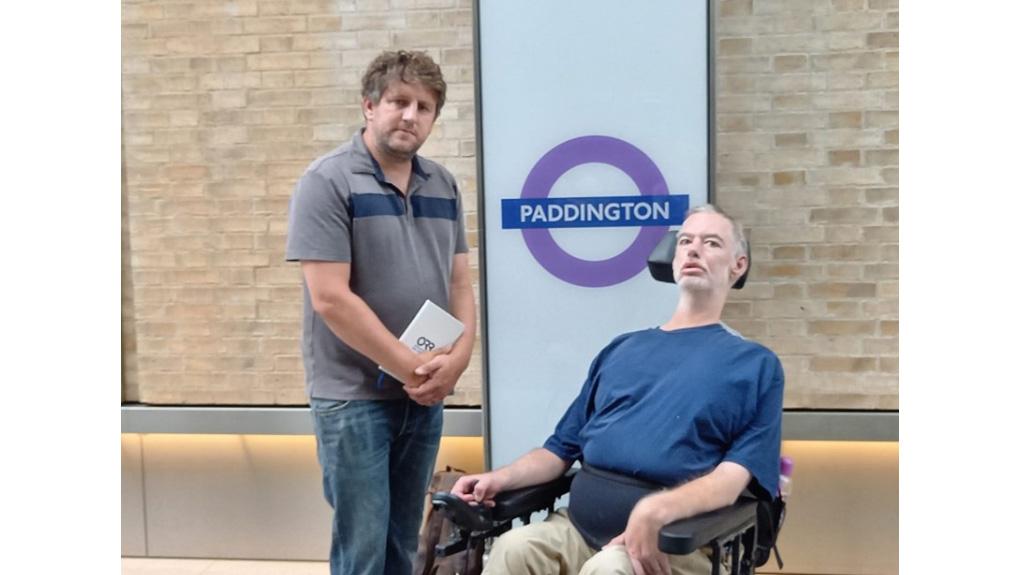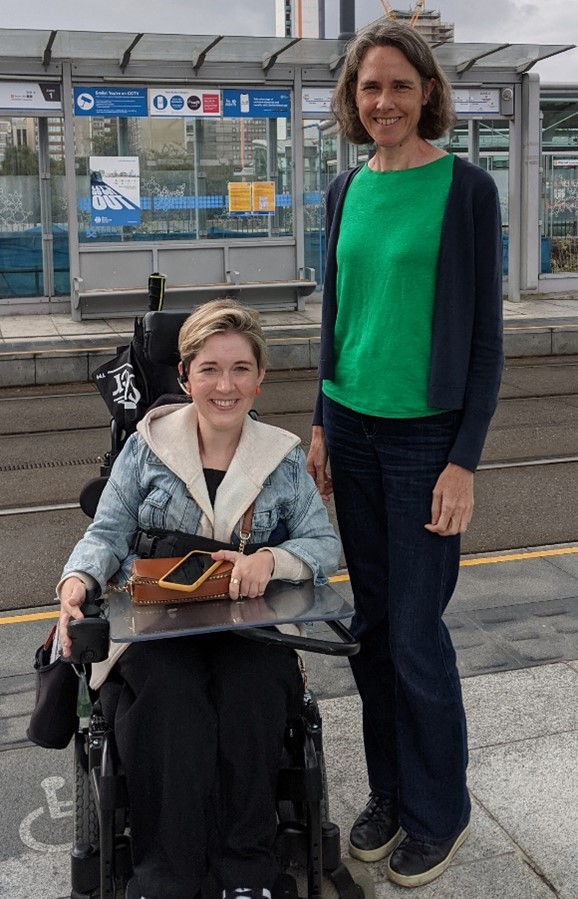
We want to empower confident travel for all, including disabled passengers, and that’s a core objective for the Office of Rail and Road (ORR) consumer team. We put a lot of emphasis on good quality training for passenger-facing rail staff and expect it to include hearing directly from disabled passengers about their experiences of using the railway.
Of course, it’s just as important that we ourselves understand the passenger perspective and so Matt Westlake and I were glad to accept an invitation from two wheelchair-users who offered to take us out on the rail network to see first-hand what travel is like as a disabled passenger.
Sarah Rennie and Alan Benson have both got a wealth of knowledge and experience – not just as disabled passengers, but also as campaigners who have worked to make public transport more accessible. They both sit on the accessibility panel for the Passenger Assist app, advising on its development from the outset.
Our journeys with them gave us new insight into the challenges faced by disabled passengers, as well as how everything from the design of a major infrastructure project, through to the attitude of platform staff can make a real difference to a journey.
Jacqui Russell – out and about in Birmingham
Sarah designed a brilliantly diverse adventure in and around Birmingham: booking assistance with Avanti a few hours in advance on the Passenger Assist app, just turning up at a couple of West Midlands stations, including an unstaffed station, and catching a bus and a tram (with level boarding) to compare the experience.

The assistance worked at every stage, but that did not translate into me feeling confident all the time. Approaching a station and not having any way to check that someone had remembered they needed to come and deploy a ramp to let us off was nerve-wracking and only a week after I went out with Sarah, she was indeed forgotten at a terminus station.
Slow progress with app
Sarah sees the most likely cause of assistance failures as a gap in real-time information for staff, in turn caused by a mix of a lack of access to, and/or comfort working with, mobile technology. The Passenger Assist app is intended to provide an answer here – but the rollout to staff across the network has been very slow.
Journey highlight
When travelling through Birmingham New Street Station, I felt like I was with a celebrity! Sarah uses the train a lot. Put that together with a really positive, can-do embedded staff culture, and there was a lot of friendly chatting and joking as we walked through the station.
Matt Westlake – out and about in London
Alan took me around London using 6 different stations and train operators. Uncertainty was a recurrent theme.
‘Step-free station’ was often an aspirational promise of how things might work ideally, rather than accurately describing current operations.
Out of order
Lift reliability was key: they were out of service at three stations that we’d hoped to visit. At Clapham we waited for a train to a different platform, but for the other stations (including one where the lift had been broken for three days) we had to reroute.
Basic reliability and maintenance of the equipment was clearly an issue, but a lack of accurate or up-to-date information on failures exacerbated things. Confident use of the network is difficult when you don’t know if vital equipment will be working.
Setting the right tone
Alan works with many other disabled passengers and emphasised the contrasting (occasionally conflicting) priorities of people with different disabilities. Clear, frequent announcements are important for deaf people, but can contribute to an intimidating cacophony for autistic passengers.
Continued engagement
Alan said that, rather than despair, the industry should engage with disabled passengers early in a project. Disabled passengers are pragmatic and appreciate that the railway works within practical and budgetary constraints.
Nonetheless, significant improvements that make a real difference to disabled passengers can often be achieved without extortionate cost, provided that the views of disabled passengers are sought early in the development of policy, or infrastructure planning.


